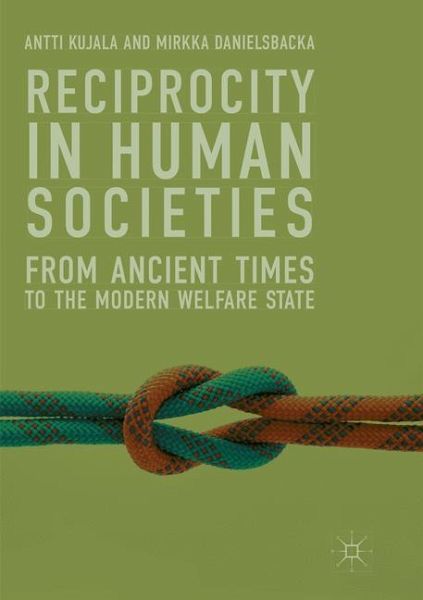
Reciprocity in Human Societies
From Ancient Times to the Modern Welfare State
Versandkostenfrei!
Versandfertig in 6-10 Tagen
18,99 €
inkl. MwSt.
Weitere Ausgaben:

PAYBACK Punkte
9 °P sammeln!
Presenting new insights into reciprocity, this book combines Marcel Mauss's well-known gift theory with Barrington Moore's idea of mutual obligations linking rulers and the ruled. Teasing out the interrelatedness of these approaches, Reciprocity in Human Societies suggests that evolutionary psychology reveals a human tendency for reciprocity and collaboration, not only in a mutually cooperative way but also through increasing retributive moral emotions. The book discusses various historical societies and the different models of the current welfare state-Nordic (social democratic), conservative...
Presenting new insights into reciprocity, this book combines Marcel Mauss's well-known gift theory with Barrington Moore's idea of mutual obligations linking rulers and the ruled. Teasing out the interrelatedness of these approaches, Reciprocity in Human Societies suggests that evolutionary psychology reveals a human tendency for reciprocity and collaboration, not only in a mutually cooperative way but also through increasing retributive moral emotions. The book discusses various historical societies and the different models of the current welfare state-Nordic (social democratic), conservative, and liberal- and the repercussions of the neoliberal policies of tax havens, tax cuts, and austerity with a cross-disciplinary approach that bridges evolutionary psychology, sociology, and social anthropology with history.














